|
Genres, Themes, Actors, and Directors:
- Alec Guinness Films
- David Lean Films
- Literature Adaptation
- Orphans
- Robert Newton Films
- Thieves and Criminals
Response to Peary’s Review:
As Peary notes, David Lean’s adaptation of this classic serialized Dickens novel is “a dark, highly atmospheric, punishing film”, one which will doubtless make you “really get upset [by] watching likable eight-year-old Oliver… be pushed around the cruel world”. Indeed, as much as I genuinely admire this brilliantly crafted film, I find it challenging to sit through, especially during the traumatic second half, when Oliver is torn away from his would-be kindly benefactor (Henry Stephenson), and Bill Sykes (a “terrifying” Robert Newton) shows his true colors by beating “to death his sympathetic companion, Nancy”. Indeed, this is a no-holds-barred Dickensian universe — starting from the astonishingly dramatic opening sequence, in which Oliver’s soon-to-die mother (Josephine Stuart) staggers across the moors in labor, hoping to make it to the Parrish Workhouse in time to give birth to her son. Meanwhile, DP Guy Green’s high-contrast b&w cinematography is never anything short of stunning, and the supporting cast (including Francis L. Sullivan as Mr. Bumble) is consistently strong.
The film is perhaps “best remembered”, however, for its infamous portrayal of “the Jew”, Fagin, by a youthful Alec Guinness in heavy prosthetics. Jewish groups at the time objected strongly enough that its U.S. release was delayed for several years, and “bits with the character were deleted” (they’ve since been restored); meanwhile, modern viewers continue to be dismayed by the overt anti-Semitism evident in Guinness’s characterization. While I certainly can’t argue with these sentiments, I find myself in agreement with Peary’s concise, somewhat neutral assessment of Guinness’s performance as “mannered, effeminate, [and] creepily effective”. Ultimately, for better or for worse, Lean and Guinness remain faithful to Dickens’ original conception of Fagin — and to Cruikshank’s illustrations in the original serialised novel. Indeed, it’s this close attention to detail that marks both Oliver Twist and Great Expectations (the latter generally considered to be the superior of the two films) as enduring cinematic adaptations.
P.S. Watch for teenage Anthony Newley in his first significant role as the Artful Dodger.
Redeeming Qualities and Moments:
- John Howard Davies as Oliver
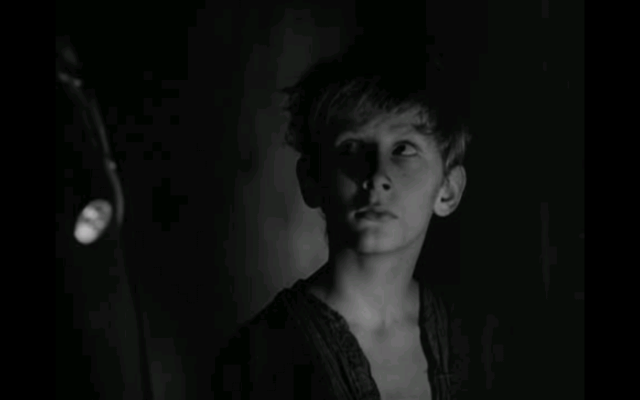
- Alec Guinness as Fagin
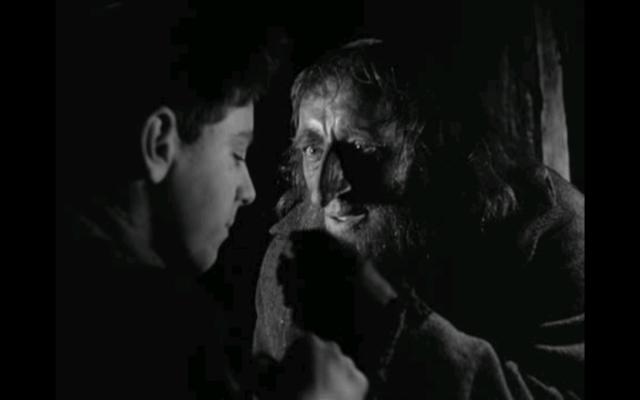
- Robert Newton as Bill Sykes

- A fine ensemble cast of supporting players
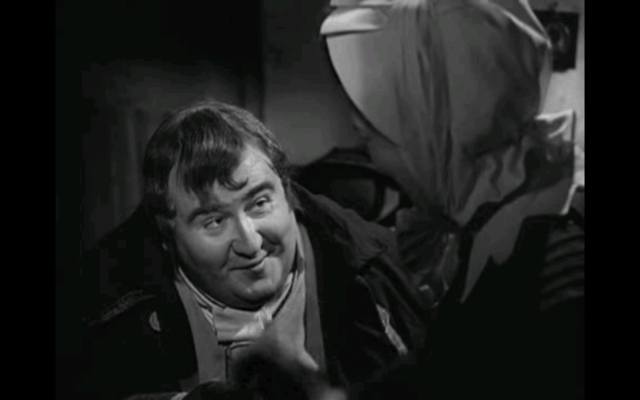
- John Bryan’s set designs
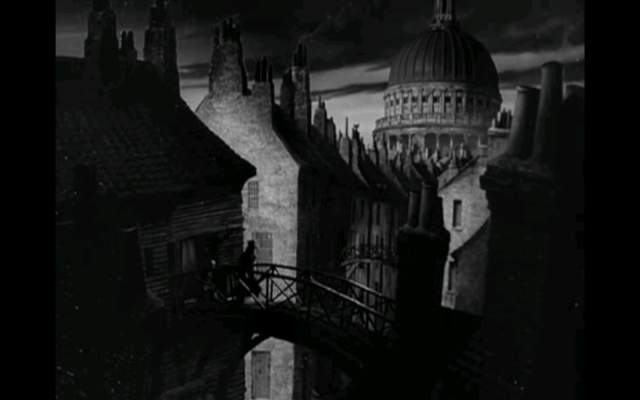
- The powerful opening sequence

- Guy Green’s dramatic cinematography
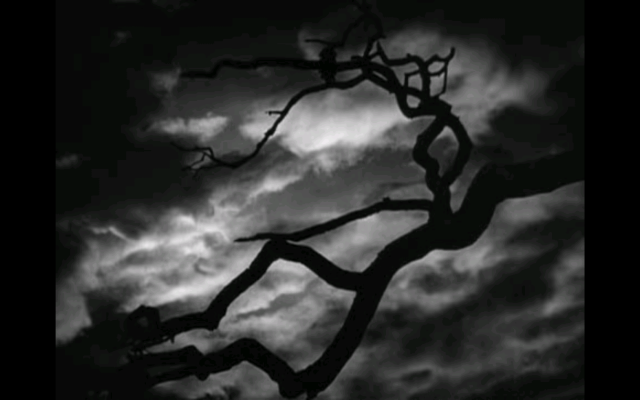
- David Lean’s masterful direction
- Jack Harris’s smart editing
Must See?
Yes, as another literary masterpiece by David Lean.
Categories
Links:
|
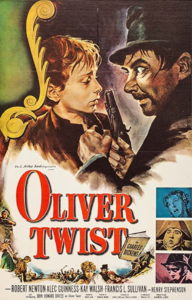







One thought on “Oliver Twist (1948)”
A no-brainer once-must (at least), for its solid place in cinema history.
One of the perks of working my way through these Peary lists is that – even though I am subjected to a lot of film that I don’t particularly care for (and, in some cases, even detest), I am also introduced to interesting or even fascinating films that I might not have seen otherwise.
As well, it’s also a plus to revisit very fine films (such as this one), which I might not have been inclined to revisit…not because “once was enough”, but because normally there often isn’t enough time to re-absorb films I’ve already seen.
But I was glad to revisit this one. One reason being that I am not an overwhelming fan of director David Lean – esp. when it comes to some of his later, bloated films. That said, a fair amount of his earlier work is remarkable and worthy of repeat viewings.
In seeing this particular film again, it’s fascinating to watch how Lean appears to have little interest in anything but serving the story with fierce respect.
I recall reading ‘Oliver Twist’ in high school (where I was also seen, as Fagin, in a production of the musical version ‘Oliver!’). But, since that was a good many years ago, this revisit of Lean’s adaptation didn’t immediately reveal to me just how faithful the film is to the novel. (Lean co-authored with Stanley Haynes and, apparently, also received uncredited assistance from Eric Ambler and Kay Walsh – who plays Nancy.)
I did, however, notice that this film is much, much darker than the subsequent musical version – which attempts to balance harshness with the softer elements that are almost de rigueur, even in a dramatic musical. Lean’s film *is* quite harsh – the ratio of bad people to good being about 90%-10%. But, of course, that is less a worldview than a reflection of Dickens’ dedication to social reform.
As for the allegations of antisemitism, it’s interesting to note (at the following Wikipedia link) Dickens’ own reaction to such accusations and his attempts to clarify his intent in his portrait of Fagin:
https://en.wikipedia.org/wiki/Fagin
Sidebar: Whoever trained Sykes’ dog for the film did a great job – I’ve rarely seen an animal give such a detailed performance on-screen.